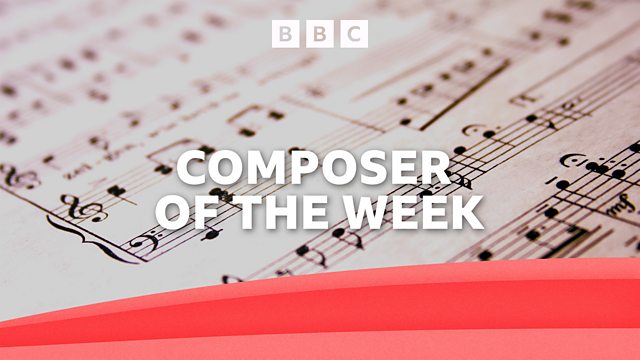
A divided city
Donald Macleod explores the Vienna Schubert was born into, and the composer’s early years in the city.
Donald Macleod explores the Vienna Schubert was born into, and the composer’s early years in the city.
Of all Europe’s major cities, perhaps Vienna is the one with the reputation as the most comfortable, the most sophisticated, and the most musical. In fact, has any other city been home to so many great composers as Vienna? Mozart, Beethoven, Haydn, and Salieri all spent their best years working there. Yet none of those starry names was born in the city, none were true Viennese. Over the course of this week, Donald Macleod explores Vienna through the lens of arguably the greatest home grown composer the city has ever produced – Franz Schubert – a man whose short life spanned a crucial period in Austrian history, a time of crisis and much change. In his company we’ll explore Vienna’s churches and theatres, its parks, coffee houses and taverns, and also glimpse the darker side of the city too – the excesses of Europe’s aristocracy and the all seeing eyes of Vienna’s secret police.
In Monday’s episode, Donald explores the city Schubert was born into – a Vienna reeling from war with Napoleon and the bitter consequences of that – a city full of anxiety, poverty, and despair. We follow the young musician as he takes the examination for a place in the Court Chapel Choir among much mockery from the more well to do boys, but even on admission to the choir life was hard, with money scarce, and food often inedible. Schubert found solace in singing and playing music, but even that was disrupted when the French led by Napoleon, began their second occupation of the city in 1809.
“Kupelwieser” Waltz in G flat Major, D Anh I/14
Mariam Batsashvili, piano
Symphony No 9 in C Major “The Great”, D944 (3rd mvt, Scherzo)
Scottish Chamber Orchestra
Maxim Emelyanychev, conductor
String Quintet in C Major, D 956 (2nd mvt, Adagio)
Heinrich Schiff, piano
Alban Berg Quartet
Beitrag zur fünfzigjährigen Jubelfeier des Herrn von Salieri, D407
Christoph Prégardien, tenor
Camerata Musica Limburg
Jan Schumacher, conductor
Marches Militaires, D733 (No 1 in D Major)
Daniel Barenboim, Radu Lupu, piano
Gretchen am Spinnrade, D118
Renée Fleming, soprano
Christoph Eschenbach, piano
Produced by Sam Phillips for ��ѿ��ý Audio Wales and West
To listen on most smart speakers just say “ask ��ѿ��ý Sounds to play Composer of the Week"
Last on
More episodes
Previous
You are at the first episode
Music Played
-
![]()
Franz Schubert
Kupelwieser Waltz in G flat Major
Performer: Mariam Batsashvili.- WARNER CLASSICS : 9029629061.
- Warner.
- 12.
-
![]()
Franz Schubert
Symphony No 9 in C Major "Great" D944 (3rd mvt, Scherzo and Trio)
Orchestra: Scottish Chamber Orchestra. Conductor: Maxim Emelyanychev.- LINN : CKD 619.
- LINN.
- 3.
-
![]()
Franz Schubert
String Quintet in C Major, D956 (2nd mvt, Adagio)
Performer: Mstislav Rostropovich. Ensemble: Emerson String Quartet.- DG : 431 7922.
- DG.
- 2.
-
![]()
Franz Schubert
Beitrag zur fünfzigjährigen Jubelfeier des Herrn von Salieri, D407
Performer: Jan Schumacher. Singer: Christoph Prégardien. Choir: Camerata Musica Limburg.- GENUIN : GEN-17474.
- GENUIN.
- 9.
-
![]()
Franz Schubert
Marches Militaires, D733 (No 1 in D Major)
Performer: Daniel Barenboim. Performer: Radu Lupu.- APEX : 25646-80707.
- APEX.
- 1.
-
![]()
Franz Schubert
Gretchen am Spinnrade, D118
Performer: Christoph Eschenbach. Singer: Renée Fleming.- DECCA : 455 294-2.
- DECCA.
- 10.
Broadcast
- Mon 30 Dec 2024 16:00��ѿ��ý Radio 3
Beethoven Unleashed – the box set
What was really wrong with Beethoven?
Composers A to Z
Who knew? Five eye-opening stories from Composer of the Week
Five reasons why we love Parry's Jerusalem
What is the strange power of Jerusalem which makes strong men weep?
A man out of time – why Parry's music and ideas were at odds with his image...
The composer of Jerusalem was very far from the conservative figure his image suggests.
Composer Help Page
Find resources and contacts for composers from within the classical music industry.





